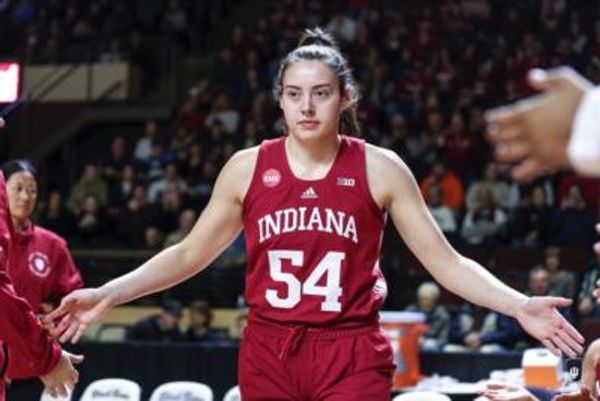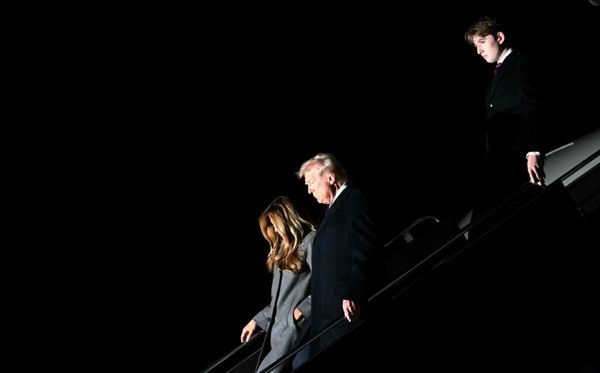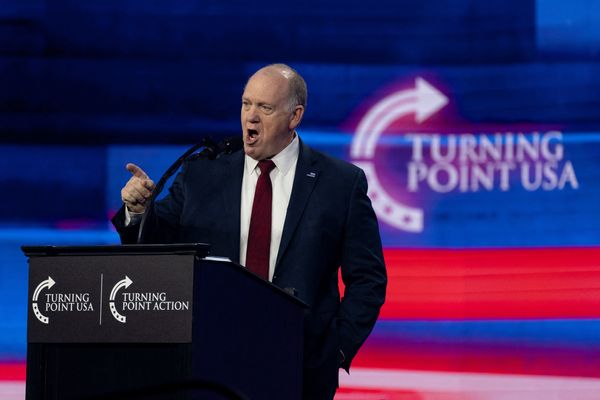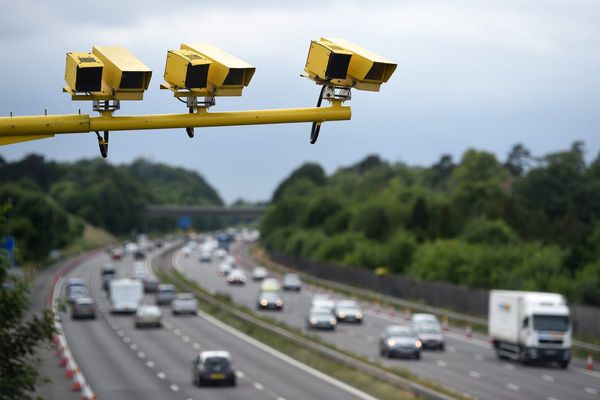
Every man has a limit. A place they will not be taken, a line that will not be crossed, a point at which they bend and break. And as England’s footballers peeled off their smart blue training jackets a few minutes before 4pm local time at the Khalifa International Stadium, perhaps we discovered theirs.
They really, really wanted to wear the armband. Perhaps was the main thing. Indeed that was the thrust of the Football Association’s statement issued about an hour before kick-off in their opening World Cup game against Iran, in which it declared it was “very frustrated” with Fifa’s ban on the little strip of elastane that had been unveiled with such proud fanfare in advance of the tournament. On reflection, maybe the real armband was the press releases it issued along the way.
And so, farewell to the OneLove armband. We never really knew you. Certainly we didn’t know what you were for. LGBTQ+ rights, we think. Maybe a bit of anti-racism too? Some gender equality, some disability rights, and maybe a little bit of migrant worker feels thrown in there too. None of this, of course, was specifically mentioned in the promotional literature.
This is a World Cup like no other. For the last 12 years the Guardian has been reporting on the issues surrounding Qatar 2022, from corruption and human rights abuses to the treatment of migrant workers and discriminatory laws. The best of our journalism is gathered on our dedicated Qatar: Beyond the Football home page for those who want to go deeper into the issues beyond the pitch.
Guardian reporting goes far beyond what happens on the pitch. Support our investigative journalism today.
Meanwhile the time-honoured rainbow design of traditional LGBTQ+ allyship was eschewed in favour of red, black, green, pink, yellow and blue stripes, which is the sort of rainbow children draw when they don’t know what colours are.
The official intention was to “promote inclusion and send a message against discrimination of any kind”, a mission statement of such magnificent vagueness that it is impossible to imagine a single cogent argument against it. You couldn’t object to the OneLove armband because it didn’t really exist. It was essentially designed as an empty vessel, a weightless piece of branding, the fabric equivalent of the shrug emoji. It wasn’t nothing. But it was probably the next best thing.
And yet given English football’s predilection for fixating on nothing, perhaps it was no surprise that OneLove became something of a cause célèbre among the English media in Qatar, particularly when word got out that Fifa was thinking of banning it. Much like the fuss over the taking of the knee in 2021, where the discourse over the gesture overshadowed any of the causes or issues the gesture was highlighting, press conferences and off-record briefings were lit with feverish armband chatter.
Would it be an automatic booking for Harry Kane? What if he refused to take the armband off? Could someone else – maybe Jordan Pickford – wear the armband instead? And would England ultimately defy the bloodless bureaucrats of Zurich and stand up for the cause they believed in, whatever it was? Well, of course not. As soon as the threat of “sporting sanctions” was brandished – no, please, not the sporting sanctions – England and their international comrades-in-arms simply quivered into line.
An armband that was already a form of surrender was now being folded into a larger surrender. And although the official communication came from Fifa, the armband ban really comes from the same place as the 11th hour ban on stadium beer: a naked last-minute Qatari power move, an assertion of control and ownership, insubordinates being nudged into line with a bloody stick.
The argument is that condemnation should not fall on England’s players, who did not impose this ban and who bear no direct responsibility for the moral cost of this World Cup. And yet just across the halfway line, there was a very different concept of what it means to be an athlete for your country in 2022.
As the Iranian national anthem played before the game, not a single word was sung by any of Iran’s players in defiance of the country’s brutal crackdown on protesters. Women are being beaten in the streets. Men are being dragged into police stations and killed. Human rights groups estimate that about 400 demonstrators have been murdered.

Not all of Iran’s players have spoken out against the violence. But those who have, including the star striker Sardar Azmoun, do so in the knowledge that sporting sanctions are the least of their worries. And really the true measure of activism is in what you are prepared to give up.
Muhammad Ali protested against the Vietnam war even though he knew he would be arrested, stripped of his world titles, robbed of his prime years. Iran’s players have risked unemployment, humiliation, imprisonment, threats against their families from a depraved autocratic regime. England have shown that they are not even prepared to risk a yellow card.
There are two World Cups happening in Qatar over the next month. The Khalifa International hosted a terrific game of football on Monday. The outside of the stadium was emblazoned with slogans such as “Celebrate” and “Live it All”. Once the game began, the goals poured like rain. Each England goal was punctuated by a blast of “Freed From Desire”, and the England fans – those who had paid to be there and those who had not – jumped up and down as if they were having the best time of their lives.
This is the World Cup that Fifa and Qatar want everyone to talk about and enjoy. Skyscrapers festooned in Kylian Mbappé posters, stadiums bouncing to ear-splitting music, a din so loud you can no longer hear the screaming of those who suffered to make this happen. Yes, there are two World Cups happening here. England have decided they only want to play in one of them.







